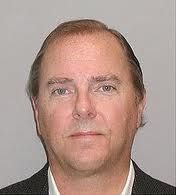

Loving the Lies
We love liars. Much of the time we elevate effective liars to national and international leadership. Don’t believe me? Try this quick quiz:
1. What corporation did Fortune Magazine list as “America’s Most Innovative Company” six years in a row? Answer: Enron. (In fairness, their accounting fraud was pretty innovative.)
2. Who was chairman of the board of the National Association of Security Dealers, a major expert on securities governance, and one of the most consistent, respected investors in the world until 2009? Answer: Bernie Madoff
3. What presidential candidate was the great supporter of the “Little Guy,” universally admired for his family life and feisty, brilliant wife? Answer: John Edwards
Governments lie as a matter of routine. And we do especially appreciate pie in the sky, beautiful lies. A personal favorite—lets cut taxes, begin multiple wars, and simultaneously balance the Federal Budget—George W. Bush.
Most of us have our own favorites. Lying is in. Lying is routine. But why are we buying the lies?
It’s Hot Out There
Things are not good.
People look around and don’t feel much comfort—or any at all.
Beautiful lies are much more seductive when:
The world is getting hotter—much hotter. This year has been the hottest on record. When it’s 115 degrees, Kansas really feels the heat (human DNA cooks at 106 degrees; thankfully we have efficient skin.)
Bankers and their friends helped blow up the world economy in 2007. Now we discover Libor—the finance rate that controls $8000 trillion in assets—has been rigged for years.
The global financial mess has clearly not been fixed. The Eurozone may soon implode.
An immense debt mountain faces most of the world’s largest economies—at the moment their economies are stalled.
Unemployment ticks up and up, and people lose their jobs, home, and health insurance (One reason I wrote “Healthy Without Health Insurance” was to show unemployed patients what they could do for themselves when everything appears to be going down the drain).
Extinction—humans are now the direct, recognized cause of one of the greatest biological die-offs of the last billion years, helping many thousands of species to disappear.
The ice caps are melting. If the Greenland ice sheet goes, many of the world’s great cities flow under the waves.
North Korea and Iran rush their work on nuclear weapons.
Biologists show how easy it is to create new lethal viruses.
It’s scary out there. You can’t trust the economy—or your job. You can’t fully trust governments. You can’t trust the weather. You can’t trust your home won’t be underwater when your kids grow up.
What can you trust? Perhaps your body.
Health Hucksters Hit High
In conditions like the 1930’s, it’s only normal that people will prefer fantasy to facts. It’s nice to dream, isn’t it? Who doesn’t want to hit the lottery?
And if I can’t control the weather, the economy, foreign policy, or governments, I should be able to control my body.
And we like quick fixes. What could be better than simple, easy answers to complex questions?
Living by soundbite looks pretty good when the alternative is present reality. And let’s face it, sensible is not sexy—especially on TV or the Net.
So hucksters appear—almost everywhere. You can make millions with no money down! Buy metals—and get rich when everyone becomes poor!
And you can “Get Skinnier Than All Your Friends” (the “Six Weeks to OMG” by Venice A. Fulton—not his real name.) Or quickly learn to “Become Superhuman” (“The Four Hour Body” by Timothy Ferris.)
Venice A. Fulton argues that you can lose weight by slamming into cold, cold baths first shot in the morning; skipping breakfast; imbibing 2 cups of very black coffee before you exercise; avoiding fruits that “block fat loss”; and recognizing broccoli is often a worse “carb” than soda.
Ferriss, also the author of “The Four Hour Work Week”, made his first fortune selling supplements to body builders promising to double their performance or their money back—plus 10%. He says you can lose 20 pounds in 30 days without exercise, obtain 15 minute orgasms and sleep two hours in 24—as well as achieve superhuman physical performance.
His quality of health advice is revealed by the story that when told by his orthopedist he was “a 30-year-old in a 60 year-old body" he decided to “reverse a lifetime of injuries and physical abuse in 14 days.” His answer—a trip to a Arizona doctor where he sets a “clinic record for single injections.” The cocktail includes unregulated and probably untested platelet rich plasma, bone morphongenic protein 7, stem cell factor, and other powerful immune modulators. The result—Ferris goes to the UCSF ER with a staph infection requiring emergency elbow surgery.
What are the actual rewards of such sage advice? Fulton—really British actor/physical trainer Paul Khanna—has made millions. Ferris has reaped further millions—and became the heralded first author signed by Amazon to their new publishing program.
Some stories really pay well—if you promise enough.
The Lure Of Health Hype
People want control. They figure that one thing they certainly can control their body – especially when the advice to do it only costs a few bucks.
Yet there are many reasons beyond desiring control of their bodies why people and media love health hype. They include the joy of quick fixes and speedy change – look at how much weight I lost yesterday! The pleasures and reward circuit hits – as in winning at the casino or taking illicit drugs – can be high and immediate.
And following hype allows us to avoid unpleasant personal realities. We can forego recognizing the sometimes unpleasant results of our own actions. We can skip accountability for what we do – or don’t do. Following the hype also allows us to temporarily forget the big picture – and our part in it.
Sadly, such quick fixes often produce long term messes. Complex problems usually require systemic answers to fix.
Some are available.
Your Real Wealth is Your Health
In his “OMG” book Fulton-Khanna declares “it’s dangerous to play safe.”
Doctors have to play safe. You can’t endorse health hype techniques until they’re proven in practice – for a lot of people. Because you don’t want people to get sick.
But playing safe can also prove revolutionary and remarkably productive.
One new, useful health paradigm is Regeneration – the fact that most of your body is new in 3-4 weeks.
Humans constantly update, remake, and reinvent ourselves. That’s how our biology works. Most of our hearts are new in three days. And the longest lived populations in the world live in the U.S. Asian American women in Suffolk County have an expected lifespan of 95.6 years. They’re not living that long injecting themselves with bone morphongenic protein – or rushing into cold baths as soon as they awake. Instead they’re doing really ordinary, unexciting, unsexy things – walking to neighbors; eating lots of nutritional variety; maintaining social ties; keeping regular schedules; getting enough rest to rewire their brains. They are using regular, ordinary activities – the basics of life – in ways that regenerate their bodies well.
Because health is not really about your health care – though it matters greatly when you’re sick. The real trick is to not get sick.
Lifespan is about lifestyle. For what you do is what you become. Your common, daily actions create the information that continuously updates your body, remaking it anew. And “boring” simple stuff like walking, socializing, and eating whole foods helps make that regeneration more efficient – for you and your community.
For real health is not about getting skinnier or having longer orgasms than your friends. Real health is social, physical, mental and spiritual well-being. You want to feel whole – alert, alive, concentrated and relaxed. And much of that comes from knowing how to live.
Following a regenerative path may not give you glowing skin, tight tummies, sharp etched muscles and fabulous hair. That may happen – though it will take a while.
But over time it’s better to try to be human than superhuman. It’s easier, more relaxing, less stress – and a lot more fun.
And when you realize how simple it can be to regenerate yourself – directly and clearly – you recognize that other, “intractable” problems can also be dealt with intelligently and systematically.
Because it’s not just you that uses continuous regeneration to survive and thrive – it’s all biology on this planet.
We’re in this together. And life on earth needs the same kind of help that you can provide yourself.



